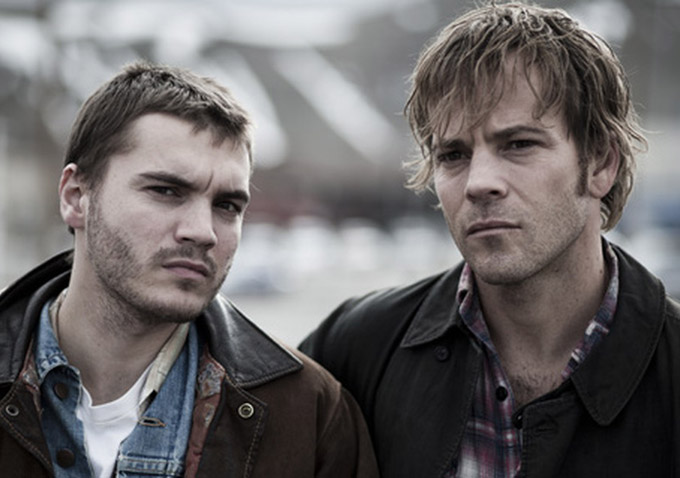
On the surface, there should be nothing particularly special about producer-turned-director brothers Gabe and Alan Polsky‘s debut, “The Motel Life.” Threatening to sound like indie-by-numbers on paper, the film, based on the well-received novel of the same name by Willy Vlautin, is indeed familiar in its downbeat, disenfranchised Americana setting and even some of its themes: familial love, redemption and the fragility of hope in the face of ill-starred circumstances. But while it doesn’t reinvent the wheel, or revolutionize the genre, it achieves its modest ambitions affectingly well, in no small part due to a clutch of cherishable performances, especially from leads Emile Hirsch and Stephen Dorff, as brothers Frank and Jerry Lee. And beyond being well-performed, it has an inspired ace up its sleeve: Interspersed within the minor-key drama, but somehow never interrupting its flow, are brief pencil animations, illustrations of the stories Frank tells. These interludes provide a whimsical, humorous counterpoint to the slowly unfolding dramas onscreen, and, as they do for the characters, give us a sense of a blue sky of possibility and hope that glimmers all around and above the slushy ground and its harsh realities.

Jerry Lee (Dorff) and Frank (Hirsch) are brothers bound together by a promise made to their dying mother, but also by deep affection, maybe tinged, as so many familial relationships, with guilt and duty. Jerry Lee, who has a prosthetic leg as a result of falling from a train as a boy, is a talented artist who has, he claims, never been in love except with one of his drawings — a cheesecake pinup called Marge, based on a character in one of Frank’s stories. Frank, it is briefly alluded to, had sporting potential, but that talent seems to have brought him nowhere, and he’s now directionless, working menial jobs and thinking about his ex-girlfriend, Annie (Dakota Fanning). Their lives are upended when Jerry Lee accidentally kills a boy with his car, and his subsequent guilt and remorse war with his fear of getting caught, and the brothers flee Reno, then return, then flee again. As we said, it doesn’t take us anywhere particularly surprising, but the final act’s predictability is tempered by the grace and restraint with which it plays out.
Hirsch does a terrific job as Frank, the bright one, who has all the potential but has somehow forgotten how to access it — “Don’t start behaving like you’re a loser. You’re not a loser,” father figure Earl Hurley (Kris Kristofferson) reminds him. But Dorff is the one who will break your heart — his Jerry Lee is a ruined, physically shattered specimen (so unlike the Dorff of “Immortals” or even “Somewhere“), struggling with having done something which he simply does not have the resources to get over, and hating himself a little bit for relying so much on his brother’s help and kindness.

But kind is what they are to each other. It’s unusual to see a brotherly relationship that’s depicted without conflict or jealousy or ego, but the two actors sell the warmth of their closeness absolutely. And the animations,which are basically a synthesis of Jerry Lee’s artistic style with Frank’s storytelling, give form to a shared world, that with its big-breasted women in sometimes pornographic situations, its pirates and its fighter pilots, is utterly beguiling in its boyishness. And the film’s heart has warmth enough for even smaller characters: gambling addict Tommy, overweight and unlucky Al, even the manager of the local gun shop — there is affection, and time, for them all. There are, after all, no real antagonists here, just willful bloody circumstance and the self-fulfilling prophecy of light wallets, bad luck and inertia.
We’re anxious not to overpraise it, because to go in with overhyped expectations for this small, contained picture would be to deny yourself the gentle wise surprise the film provides. But the simple fact is that it won us over with its refreshing quiet confidence in itself and the kind of film it wants to be — it’s an assured debut by directors smart enough to make sure their reach never exceeds their grasp. And in Frank and Jerry Lee, Hirsch and Dorff add two lovable, flawed, human characters to their CVs: they are poor, their circumstances desperate, and in all material terms, they’re close to destitute. but like a pair of George Baileys, in their utterly dependable love for one another, they might just be the richest people in town. [B+]
This is an edited reprint of our review from the 2012 Rome Film Festival.

